Hola!
The other day in class, I and my classmates were trying to explain to our teacher the word “bittersweet.” The word in Spanish is agridulce, and is definitely used for the flavor of food. I’m not so sure that it’s used for experiences, at least not in Guatemala, because my teacher was very confused by our use of that word to describe our goodbyes.
Well, whether or not it’s metaphorically used in Spanish, my transition home has been very bittersweet. I’ve now happily returned home to my lovely Colorado, but already I miss Guatemala. Before reflecting on my time as a whole, I’ll share some of the last adventures I had.
The last full weekend I spent in Guatemala, I and four other students in my house visited the Mayan ruins of Tikal in the north of Guatemala. Tikal was the first national park created in Central America, and it so large that it requires a week to see the whole of it. We visited only the central area with the largest temples in the area: temple of the sun, temple of the moon, temple of the sand, and temple of the mountains. These ruins were constructed around 900 BC (900 years before Christ). Other fun facts I learned on our tour: we saw mushrooms in the forests that priests consumed to communicate with the mayan gods; the selva (jungle) smells like garlic due to the flowers of the ceder tree, the national tree of Guatemala; the noises of the dinosaurs in Jurassic park are recordings of the howler monkeys in Tikal; scenes from Star Wars were filmed on the top of one of the temples that we visited.
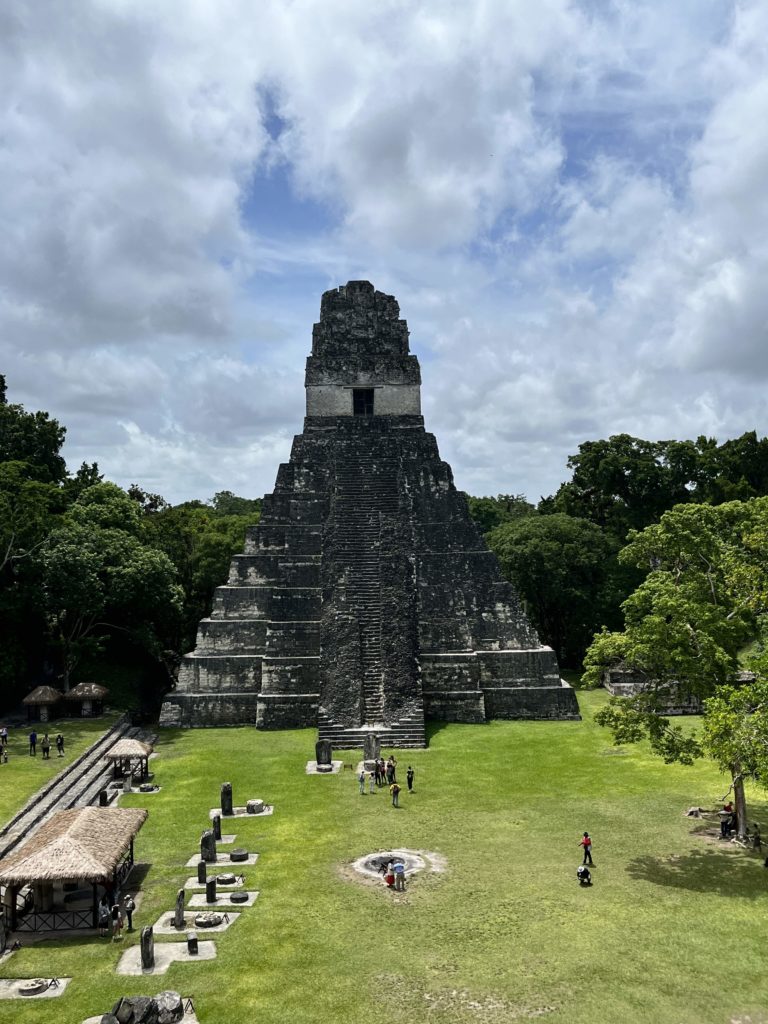
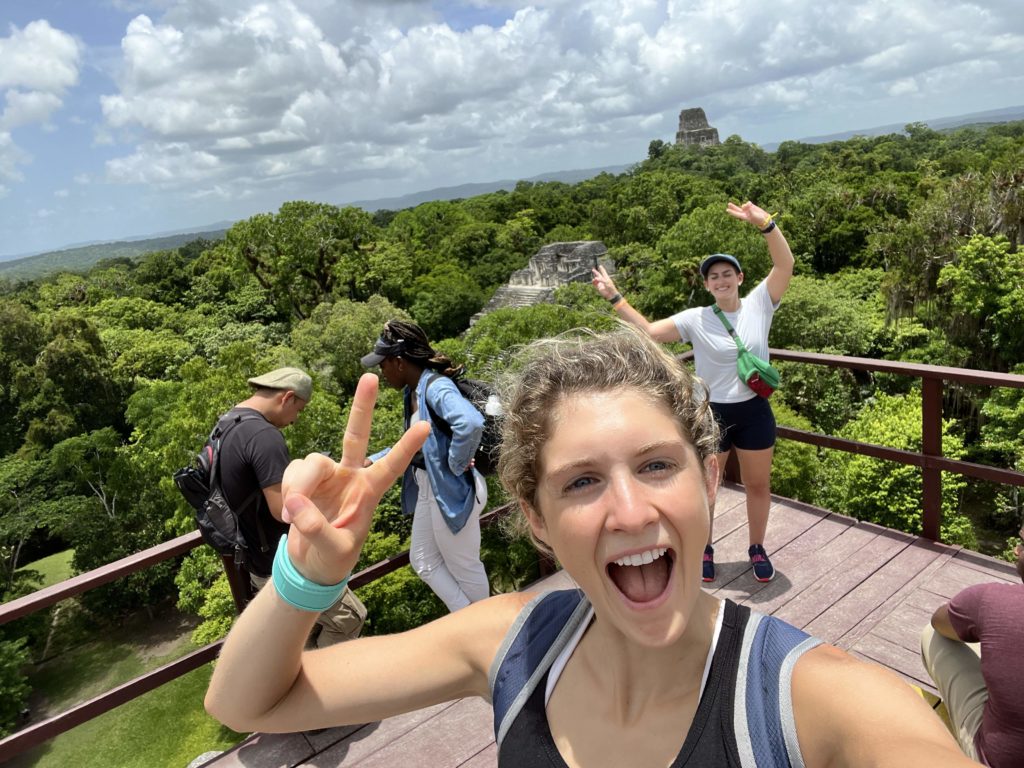
This same weekend, we visited Rio Dulce–a river that flows into the atlantic ocean–and Livingston–a beach town in the north of Guatemala. While there, we swam in an incredibly beautiful lagoon. I was also able to enjoy some amazing seafood during this weekend, including fresh fish from the river and the specialty dish of Livingston, topado: a soup with fish, shrimp, crab, and banana in a coconut cream base.
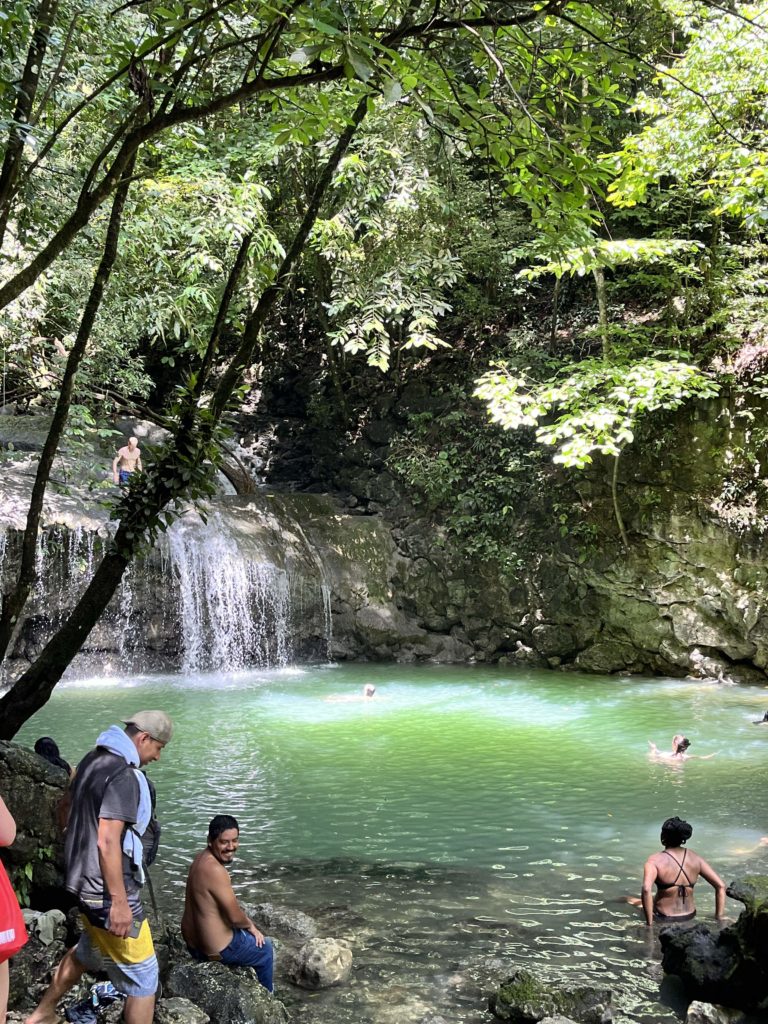
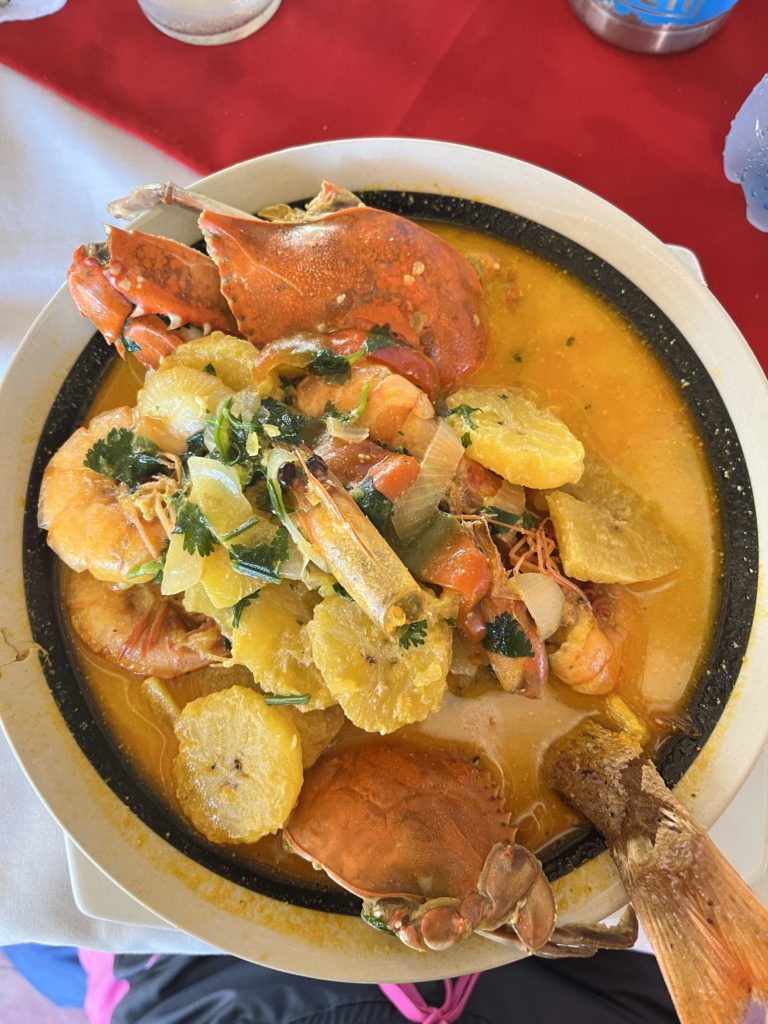
I was also able to go to two soccer games my last week here. The first game was a tie between Guatemala and Panama, and it was very dramatic. I am pretty sure that around 15 yellow cards were handed out, including our goalie. It also poured during halftime, adding to the authentic Guatemalan fútbol experience. The second game was for our Antiguan team. This game also ended as a tie, but the quality of soccer was much better. My host dad is friends with the men who bang on the drums and yell cheers for all 90+ minutes, so we were able to get in free and participate in the hype squad.
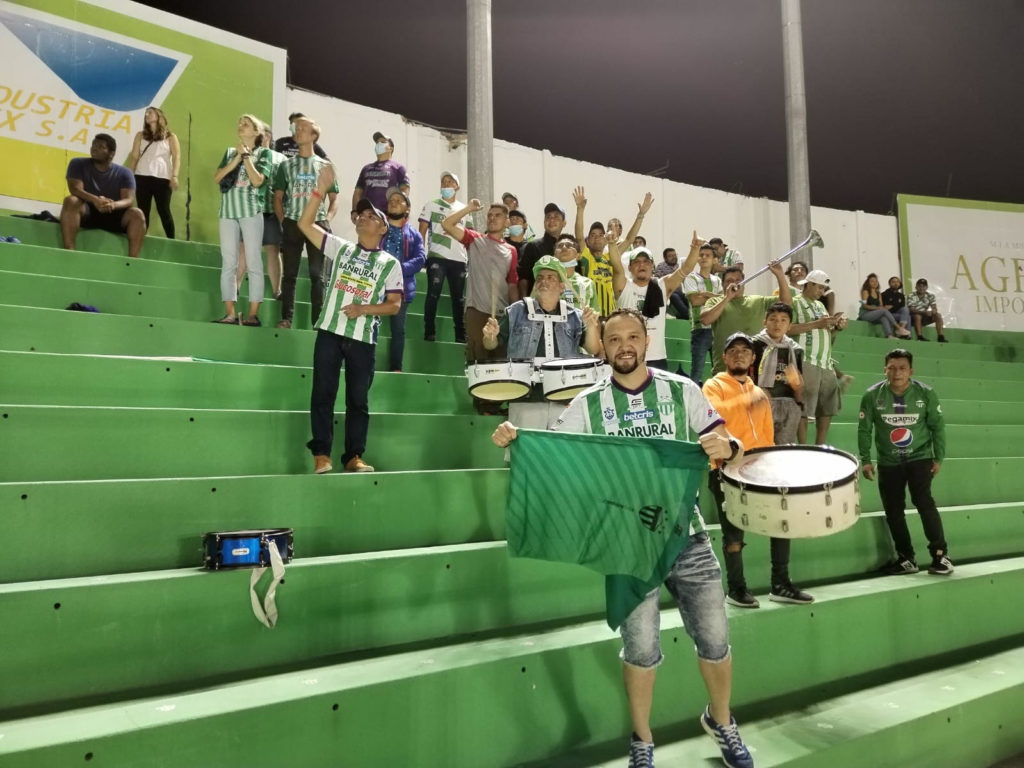
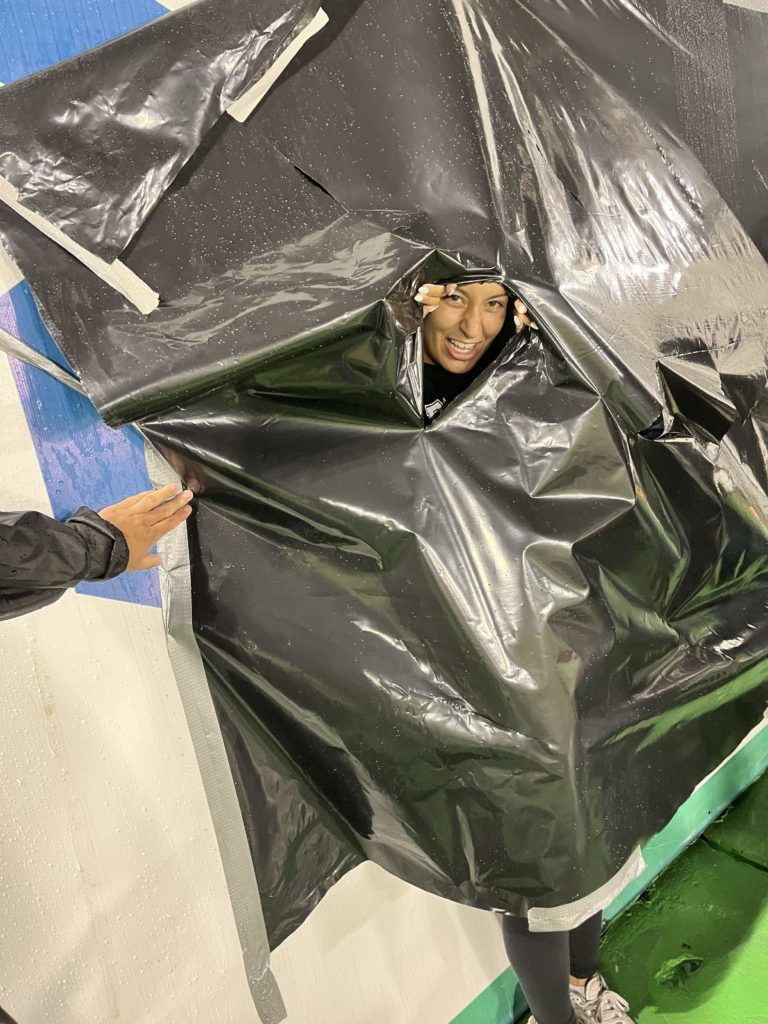
(As a side note, and this is fairly old news since it occurred in June, but Guatemala made it into the world cup. We were all very excited when this happened. Everywhere I went in Guatemala my whole time here, if there was a TV, a Guatemalan soccer game was playing on it. It could become very distracting sometimes.)
Besides going up north to visit Tikal, I also moved up from book 2 to book 3 during my last week and a half in Guatemala. Book 3 contains controversial topics, such as euthanasia, abortion, immigration, and advances in science and technology, about which we read and discussed. This move up was both a confidence boost and a sign of how far my Spanish still needs to go. It meant that, technically, I had completed fairly all of the grammar of Spanish and was able to use in in conversations, and it’s true, I was able to share my opinions about these topics. However, I still have a long way to go until I can speak with fluency. I am proud, though, that I moved from the Pre-Intermediate 2 level to High Intermediate level during my time here, an advancement of 3 or 4 levels.
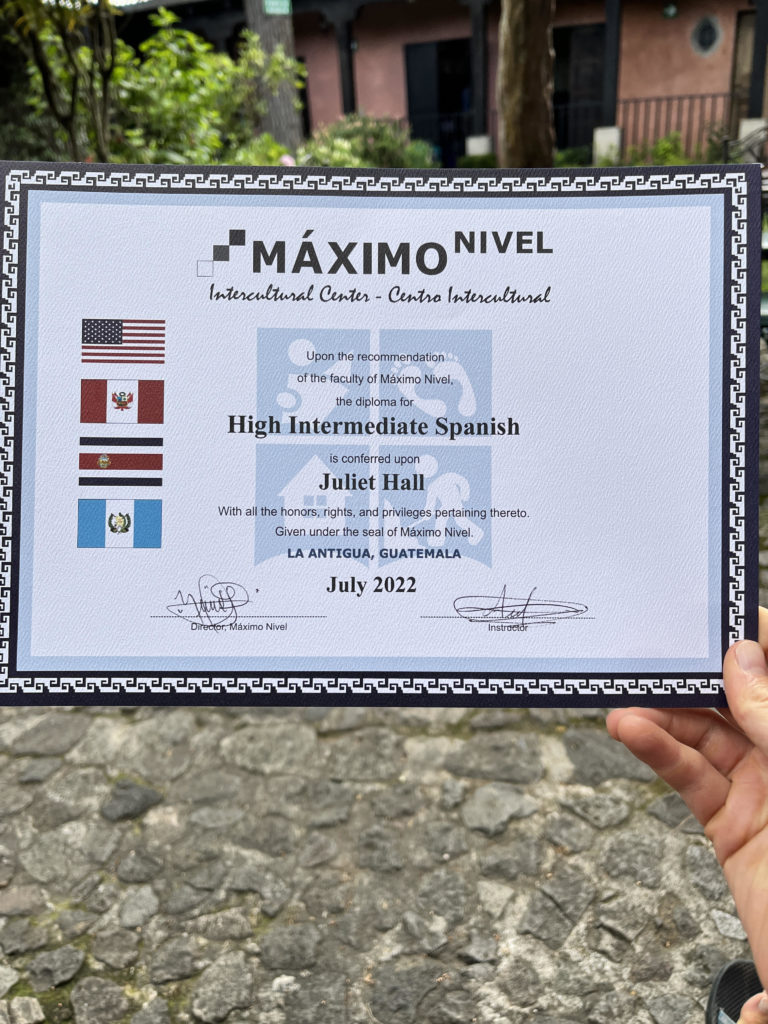
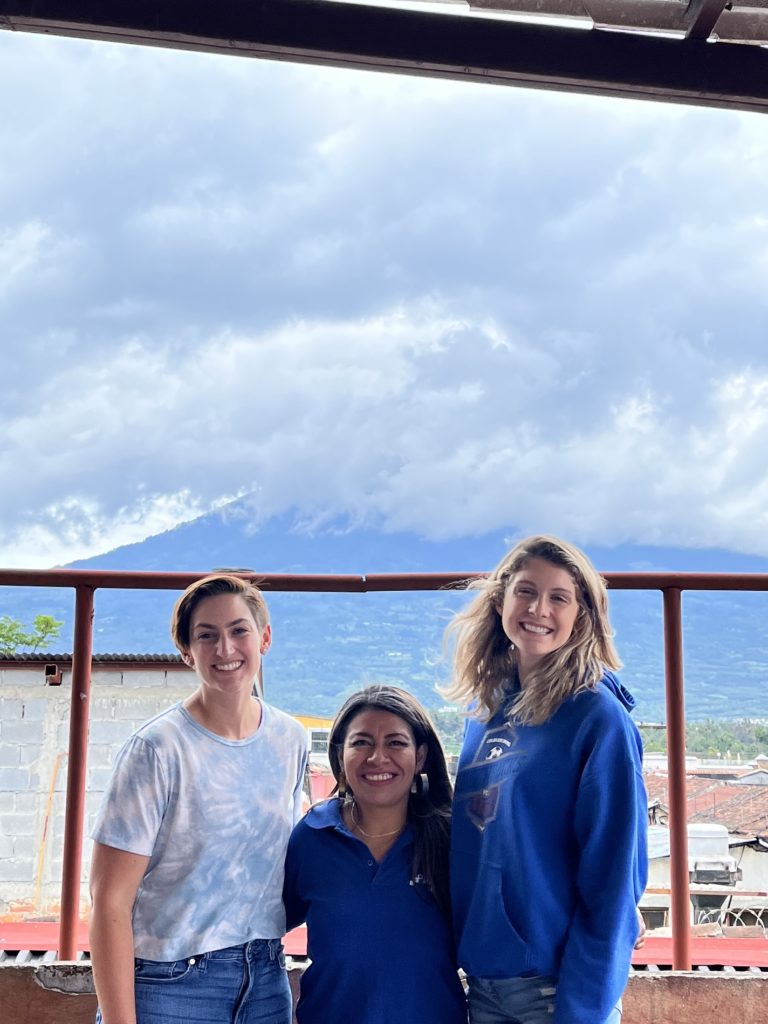
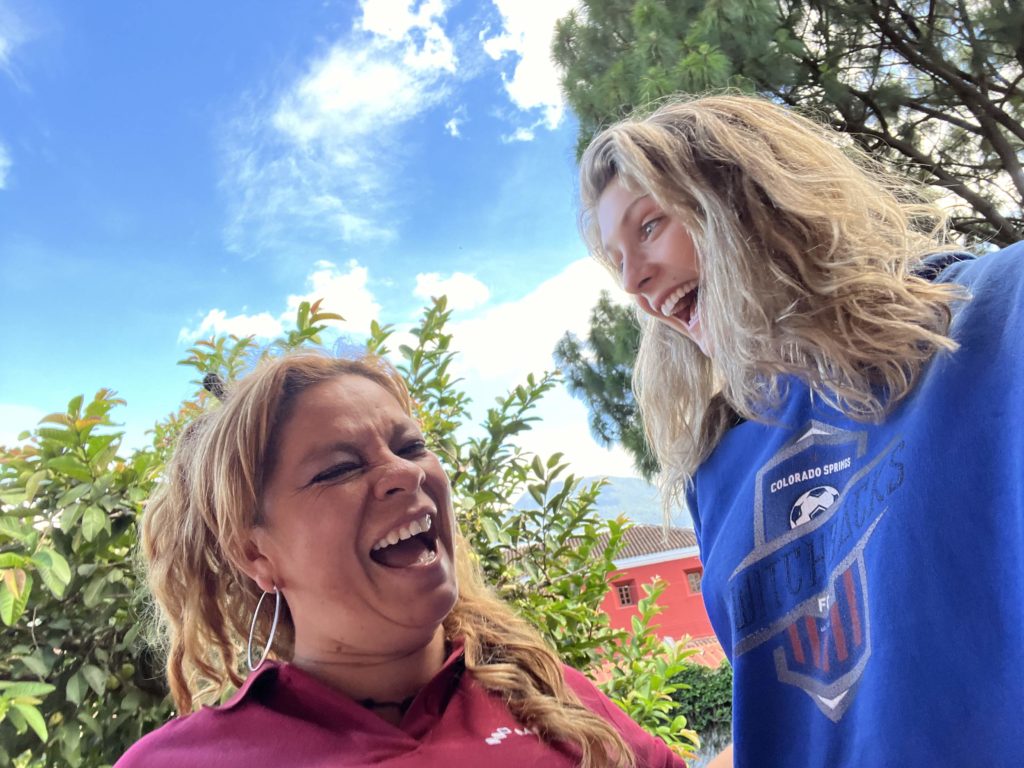
I am so grateful for my time in Guatemala. As I think back on my trip, a few things stand out to me. First off, my experience learning Spanish confirmed for me that learning a new language requires a lot of patience and dedication. Every little effort counts, whether that be listening to Spanish music rather than music in English, talking to the waiters myself rather than letting another person in our group do the talking, or doing the extra homework assignments. As my Spanish improved, I became more confident in having conversations with native speakers, but the increase of Spanish conversations of course meant an increase in making mistakes as well. I had to be okay with messing up, as well as telling people when I did not understand and asking people to repeat themselves. My improvement in Spanish has both encouraged me and given me a desire to continue learning, because I still have a long way to go until I am even close to fluent. Learning a new language does not take a break, so I am excited to take Spanish classes at Notre Dame and continue my education on my own time, with podcasts, books, music, shows, and people with whom I can speak in Spanish.
My time in Antigua was also an incredible chance to travel on my own and encounter many new people and perspectives. I met people from all over the world in the program, which exposed me to students who have had different educations, political views, and lifestyles. Yet one thing I loved is how everyone wanted to learn together, travel together, and make friends. People with whom I would have never formed friendships at home became some of my closest friends. And of course, I also met many amazing Guatemalans. It was interesting to learn about the dynamic between the traditional culture of the older generation and the more progressive culture of the younger generations. There are so many ways to describe the people and country of Guatemala: friendly, vibrant, colorful, Catholic, corrupt, without work, poor, passionate. These people lead hard lives, much harder than our lives in the States. And yet they also live with flair and a zest for life that is not always seen in American culture. I want to channel that passion into my own life.
In fact, if I could tell my past self what she should do as she begins to learn Spanish, it would be to view it not as a chore but instead as a fun and exciting adventure–for that is indeed what it is. I would tell her to develop a passion for the language early and enjoy the learning process, for it is a wonderful and life-changing experience. Of course, it takes a lot of hard work, and it is not always fun and life-changing. Sometimes, it is quite tedious. I think back on all the hours I have spent in my dorm room or library studying flash cards, doing my homework, or studying for an exam. In those moments, it is hard to zoom out and realize that I am training my brain to think in a new way. But the work is rewarding. Being able to hold a conversation in another language, even a very simple conversation, makes all those hours so very worth it.
I cannot wait to travel to Chile next spring and develop my Spanish even further! Thank you for accompanying me on this journey, and wish me luck as I continue to learn and travel!
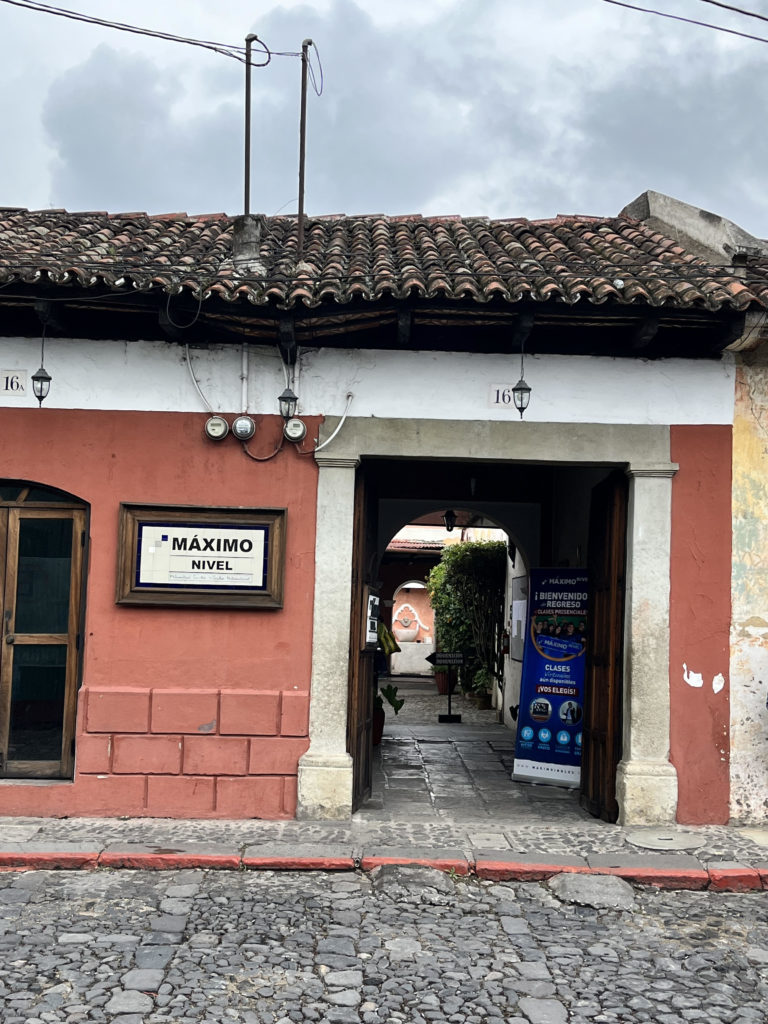
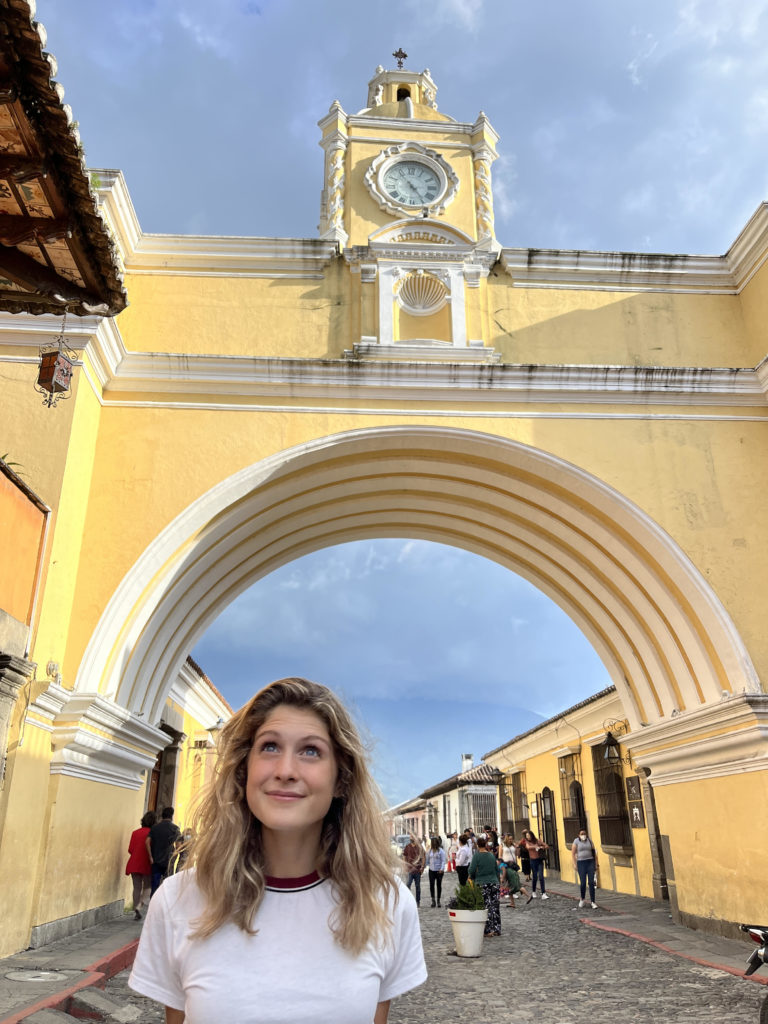
Un abrazo grande,
Juliet